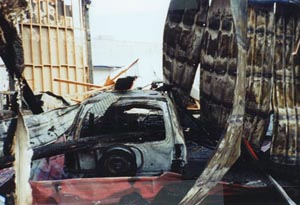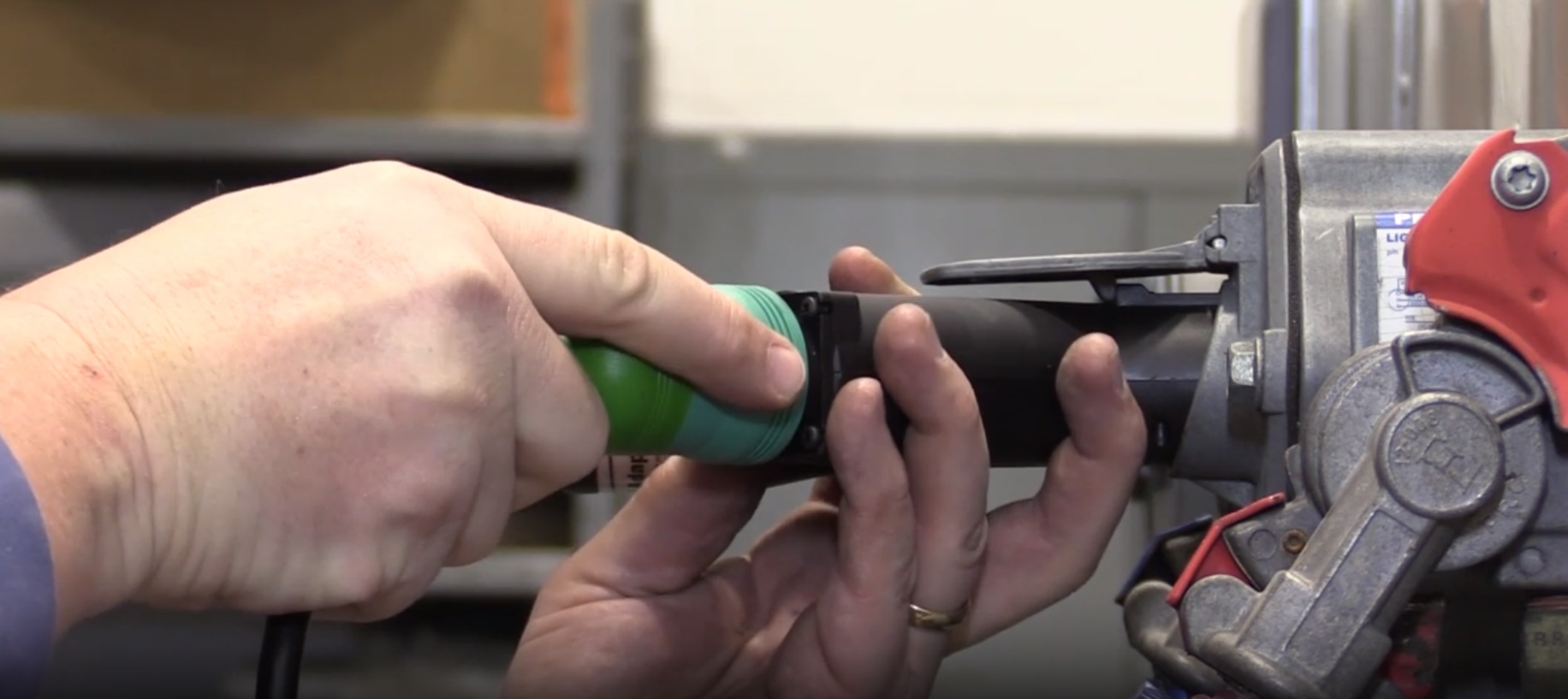 Service work on automotive gasoline tanks can result in significant property damage and employee injury if proper procedures and equipment are not used. Don’t let the following headlines happen to you!
Service work on automotive gasoline tanks can result in significant property damage and employee injury if proper procedures and equipment are not used. Don’t let the following headlines happen to you!
“Mechanic dropped trouble light near dismantled gas tank”
$60,000 in equipment and building damage incurred.
“Employee siphoning gas — fumes ignited by pilot light from water heater”
$118,000 Loss – Building beyond repair and torn down, new autos total loss.
“Spilled fuel from gas tank ignited by pilot light on water heater”
$404,522 Loss – Vehicles, building and contents destroyed.
“Service mechanic catches a customer’s auto on fire – dropped trouble light while removing a fuel pump from gas tank”
$190,120 in water, structural and vehicle damage.
“Fallen storage tank spills fuel on trouble light”
$729,336 in damage to parts and service department; showroom and body shop sustain smoke and water damage.
The vapors given off by gasoline are highly volatile and extreme care should be used when conducting work on gasoline tanks. Follow our recommended guidelines when working on tanks:
Recommended Guidelines
- The work should only be performed by employees with sufficient skill and training to carry out the operation in a safe manner.
- Prior to the start of repair work on gasoline tanks, the contents should be drained from the tank.
- The preferred location for draining gasoline tanks is outside of the building. If this is not feasible, an Underwriters’ Laboratory listed or Factory Mutual approved portable pump equipped with a storage tank should be used. Non-approved pumps should never be used. Siphoning by mouth should also be strictly prohibited.
- Gasoline drained from vehicle tanks should be stored in approved storage containers or returned to standard underground storage tanks.
- O.S.H.A. approved gas caddies are available from Handy Industries, LLC. Mention Universal Underwriters and you will receive a discount. Contact them at (800) 247-7594, by fax at (575) 752-1205, or on the Internet at www.handyindustries.com.
- If gasoline is to be disposed of, it should be stored in drums or tanks suitable for such purpose. Keep the storage containers outside of the building until they are removed by a registered disposal company.
- Ignition source control in the vicinity of tank work should include:
- “NO SMOKING” signs posted and enforced.
- Ordinary or conventional trouble lights should be replaced with the enclosed fluorescent type.
- Approved and operable multi-purpose fire extinguishers available in the immediate work area.
- The prohibition of welding or other hot work within 20 feet of tank repair/service area.
- If hot work (welding or cutting) must be completed on a tank, proper containment or cleaning and testing procedures should be followed. Consult with tank manufacturers for proper procedure recommendations.
- When tanks are being refilled with gasoline after the repair work is complete, only approved/listed devices or equipment should be used.
Significant employee injuries or property damage can have an impact on the overall profitability of a business. By implementing our recommended guidelines, you can reduce the potential for losses resulting from welding, cutting torches, or fuel-related parts. This will help ensure the safety of your employees, and safeguard your business.
Courtesy of Zurich American Insurance Company.
For more information about Zurich Financial Services Group, go to: http://www.zurichna.com.

